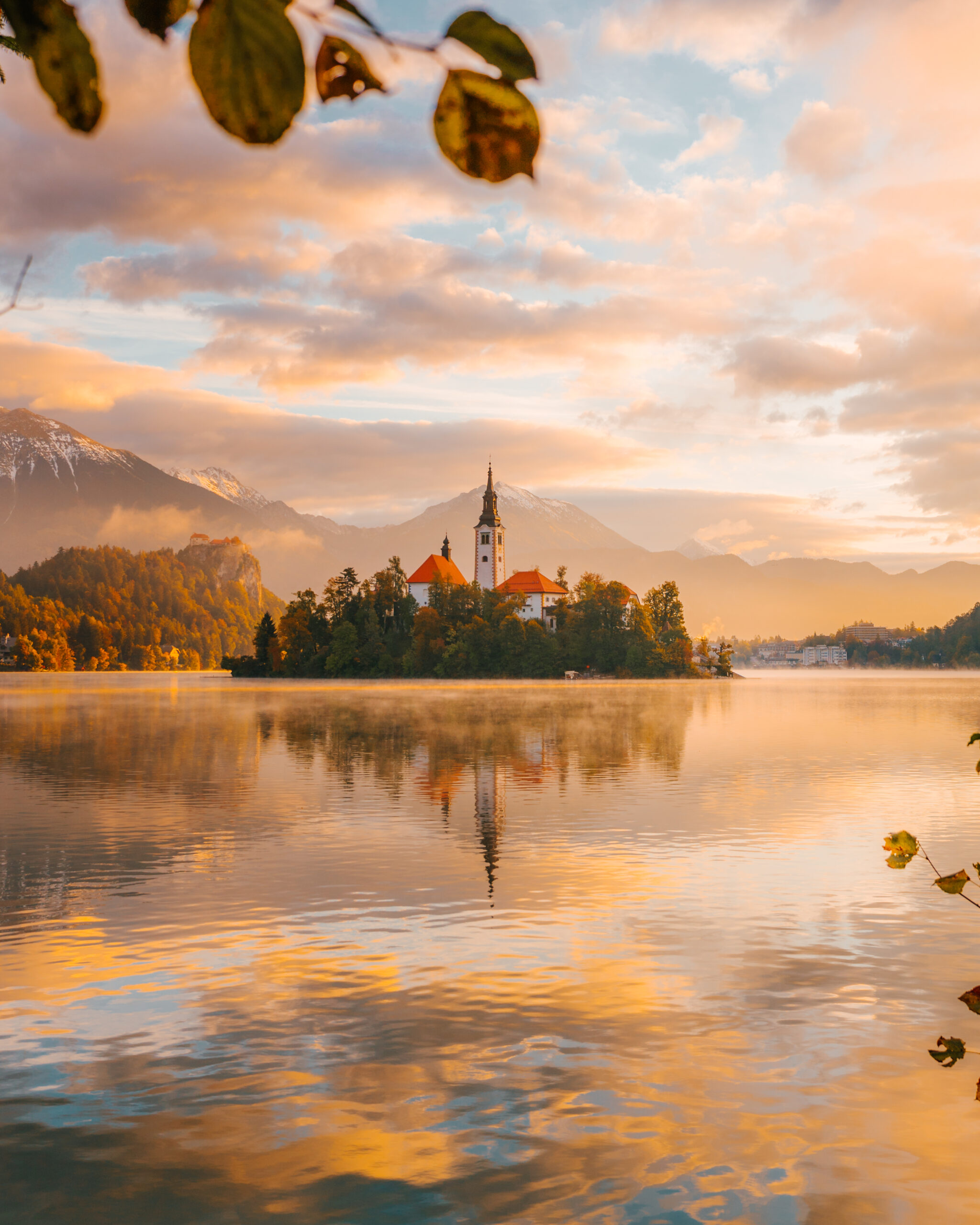2025 Travel Trends: The Ultimate Guide to Sustainable Traveling

2025 Travel Trends: The Ultimate Guide to Sustainable Traveling in 2025: Tips and Destinations
As travelers become increasingly aware of their environmental impact, sustainable travel has emerged as one of the most important trends of 2025.
From eco-friendly transportation to responsible tourism practices, sustainable travel is about making choices that minimize harm to the planet while enriching local communities. If you’re planning your next trip and want to explore responsibly, this ultimate guide will help you embrace sustainable travel without sacrificing incredible experiences.
Read on to discover actionable tips and must-visit destinations that champion sustainability.
Understanding Sustainable Travel
Sustainable travel goes beyond reducing carbon emissions; it’s about supporting the environment, local economies, and cultural preservation. This involves choosing eco-conscious accommodations, minimizing waste, and engaging in activities that respect local cultures and ecosystems.
As tourism contributes significantly to global greenhouse gas emissions, small, thoughtful changes can collectively make a massive impact.
Tips for Sustainable Travel
Choose eco-friendly transportation whenever possible. Air travel is a significant contributor to carbon emissions. Opt for trains, buses, or carpooling, which have a smaller environmental footprint.
If flying is unavoidable, consider booking with airlines that offer carbon offset programs or invest in your own carbon credits to balance the impact. Additionally, packing light helps reduce fuel consumption during flights. Be sure to pack versatile clothing, reusable toiletries, and compact travel essentials to minimize your load.
Selecting green accommodations is another vital step. Look for hotels, resorts, or Airbnbs that prioritize sustainability. Certifications like LEED (Leadership in Energy and Environmental Design), Green Key, or EarthCheck are indicators of eco-friendly practices. These accommodations often utilize renewable energy, recycle waste, and support local economies.
Carrying reusable items such as water bottles, shopping bags, and utensils helps reduce reliance on disposable plastics. Many destinations now ban single-use plastics, making it easier to adopt these habits.
Also, supporting local businesses is a crucial aspect of sustainable travel. Instead of frequenting multinational chains, dine at locally-owned restaurants, shop at artisanal markets, and book tours with small, local operators. This not only contributes to the local economy but also provides a more authentic travel experience.
Respect for wildlife and ecosystems is also paramount. Avoid activities that exploit animals or damage ecosystems, such as riding elephants or visiting unethical zoos. Instead, opt for eco-tours led by certified guides who prioritize conservation and education.
Traveling during off-peak seasons also reduces strain on local resources and allows for a more peaceful experience. To offset your carbon footprint, calculate your trip’s carbon emissions and invest in programs that fund renewable energy projects, reforestation efforts, or conservation initiatives.
The Ultimate Guide to Sustainable Traveling in 2025: Top Sustainable Travel Destinations

Costa Rica
Costa Rica remains a pioneer in eco-tourism, with over 25% of its land designated as protected areas. Visitors can explore rainforests, volcanoes, and pristine beaches while staying in eco-lodges powered by renewable energy. Activities like zip-lining through the canopy, bird-watching, and visiting sustainable coffee farms offer unforgettable experiences.
Iceland
Iceland is another model of sustainability, known for its dramatic landscapes and geothermal energy. Travelers can enjoy hot springs, glacier hikes, and the northern lights while supporting local businesses that adhere to eco-friendly practices. Reykjavik, the capital, is committed to becoming carbon-neutral by 2040.
Slovenia
Slovenia has been recognized as one of the greenest countries in the world, thanks to its commitment to sustainable tourism. The capital city, Ljubljana, is car-free in its center and offers extensive cycling paths. Visitors can explore the Julian Alps, Lake Bled, and Triglav National Park while staying in eco-friendly accommodations.
Japan
Japan has embraced sustainability through initiatives like its extensive public transportation system, eco-hotels, and zero-waste towns like Kamikatsu. Visitors can enjoy traditional ryokans, locally-sourced cuisine, and cultural landmarks while minimizing their environmental impact.
New Zealand
New Zealand actively promotes eco-tourism, encouraging visitors to follow its Tiaki Promise, a commitment to protecting the environment and respecting local culture. From hiking the Milford Track to exploring Maori traditions, there are countless ways to engage responsibly.
Portugal
Similarly, Portugal’s commitment to sustainability is evident in its renewable energy use, green transportation options, and eco-conscious accommodations.
Destinations like the Azores and Sintra prioritize environmental conservation, offering hiking, cycling, and whale-watching opportunities.
Sustainable Travel Trends in 2025
Slow travel emphasizes quality over quantity, encouraging travelers to spend more time in fewer destinations. This approach reduces the environmental impact of frequent transportation and allows for deeper cultural immersion.
Eco-volunteering is another growing trend, with many travelers choosing to give back by participating in conservation projects, wildlife research, or community development initiatives. Organizations like WWOOF (World Wide Opportunities on Organic Farms) offer opportunities to work on organic farms in exchange for accommodation and meals.
Renewable energy tourism is also gaining traction. Destinations showcasing innovative solutions, like Denmark’s wind farms or Bhutan’s hydropower projects, attract eco-conscious travelers seeking unique insights into sustainable energy practices.
Culinary travel is evolving to include farm-to-table experiences, organic vineyards, and cooking classes with a focus on local, seasonal ingredients. Supporting sustainable food systems benefits both the environment and local farmers.
For remote workers, digital nomad-friendly eco-destinations are becoming increasingly popular. Cities like Chiang Mai in Thailand, Bali in Indonesia, and Medellín in Colombia offer co-working spaces, green infrastructure, and eco-conscious communities that appeal to sustainable travelers.
How to Measure Your Travel Impact

Understanding your carbon footprint is essential for sustainable travel. Several tools and apps, like MyClimate and Glooby, can calculate emissions based on your mode of transport, accommodation, and activities. Use these insights to make informed choices and offset unavoidable emissions.
Overcoming Challenges in Sustainable Travel
While sustainable travel is rewarding, it can sometimes be challenging. Eco-friendly options may cost more upfront, but they often provide long-term benefits and unique experiences.
Research and planning are key to finding sustainable alternatives that align with your budget and preferences. Additionally, travelers should be cautious of greenwashing, where companies falsely claim to be eco-friendly. Look for transparent certifications and reviews to ensure you’re supporting genuine sustainability efforts.
Expanding Your Sustainable Travel Toolkit
To make sustainable travel easier and more accessible, consider investing in a toolkit that enhances eco-conscious choices. A portable solar charger, for instance, is invaluable for charging your devices without relying on electricity.
Lightweight, foldable tote bags can replace plastic ones, while biodegradable toiletries ensure you’re leaving no trace in natural environments.
Moreover, educating yourself about local customs and environmental concerns before traveling allows you to show respect for your host community. Reading up on sustainable practices specific to your destination not only enriches your experience but also fosters a deeper connection with the places you visit.
For outdoor adventurers, items like reusable water purification bottles, compact camping stoves, and sustainable travel guides specific to nature reserves can make a world of difference. These tools support self-sufficiency while maintaining low impact on the environment.
How Destinations Are Adapting to Sustainable Tourism

Globally, more destinations are implementing strategies to support sustainable tourism. Cities like Amsterdam are imposing visitor caps to combat over-tourism, while regions like Bhutan charge a daily sustainability fee to limit environmental degradation.
The Maldives, despite its vulnerability to climate change, is investing heavily in coral reef restoration and renewable energy projects to protect its ecosystems.
In Africa, countries like Rwanda are setting the gold standard for eco-tourism through initiatives like community-based wildlife conservation. Gorillas in Volcanoes National Park, for example, are protected through high-end, low-volume tourism models that fund local communities and ensure the species’ survival.
Europe is also embracing green travel. Norway, for instance, is home to electric ferries navigating its stunning fjords, and Switzerland’s efficient train system allows travelers to enjoy its landscapes with minimal carbon output. These examples highlight how destinations are aligning infrastructure with sustainability goals to attract mindful travelers.
Final Thoughts: Embrace Sustainable Travel

Traveling sustainably in 2025 isn’t just a trend—it’s a necessity for preserving the planet’s natural beauty and cultural heritage. By making conscious choices, you can reduce your environmental impact, support local communities, and enjoy more meaningful travel experiences.
Whether you’re exploring lush rainforests in Costa Rica, marveling at Icelandic glaciers, or immersing yourself in Japanese traditions, sustainable travel opens the door to unforgettable adventures that benefit everyone. The decisions you make today not only enhance your travel experience but also contribute to a more sustainable future for generations to come.
Start planning your eco-conscious journey today, and be part of the movement shaping the future of travel!






